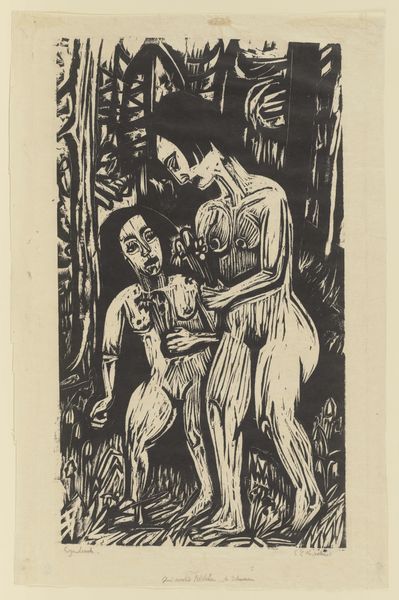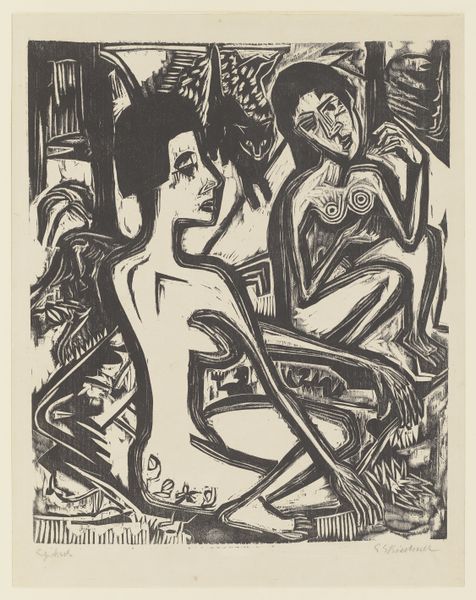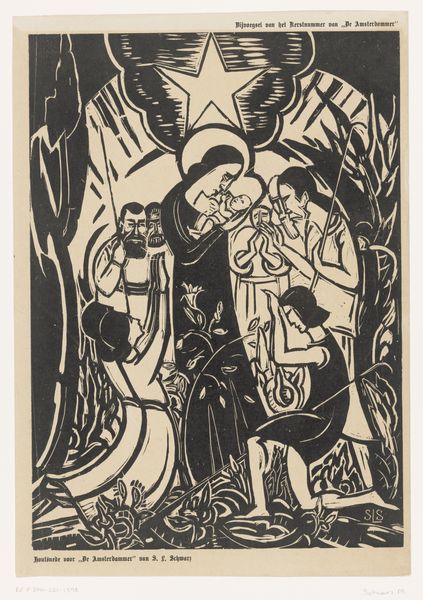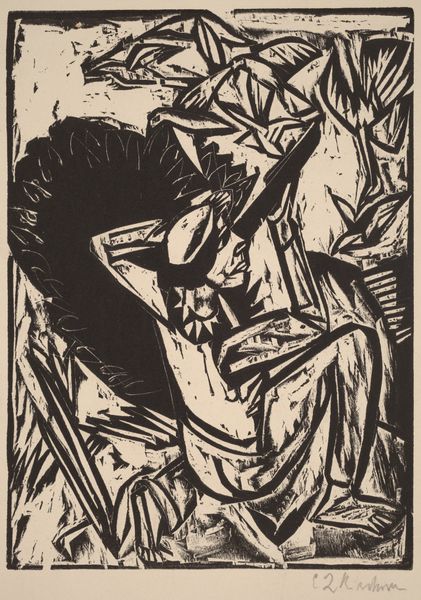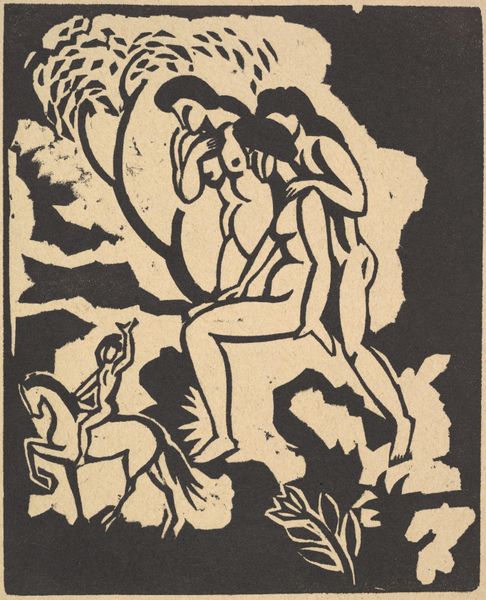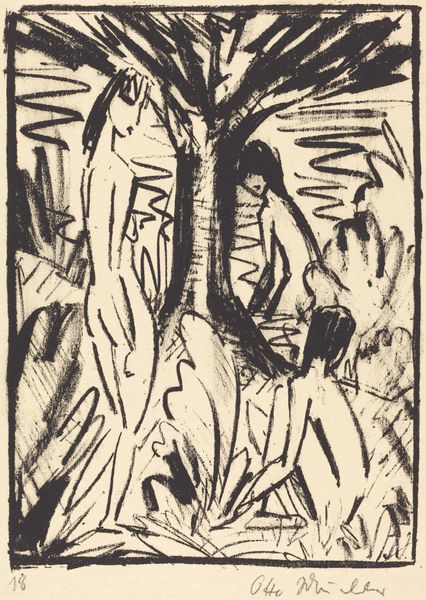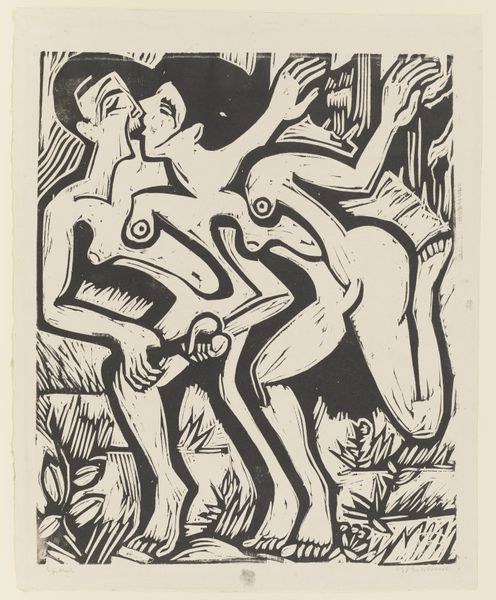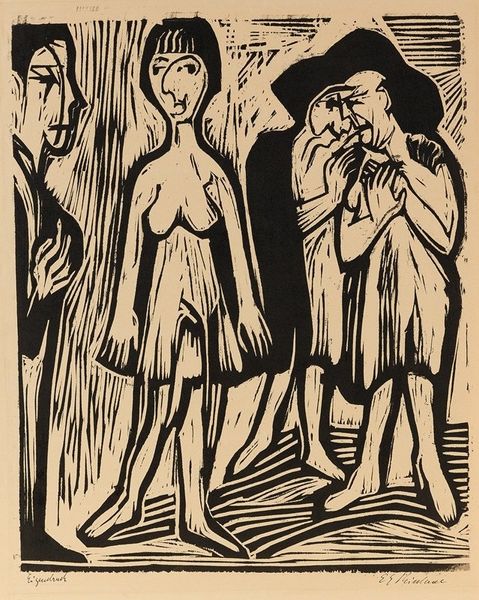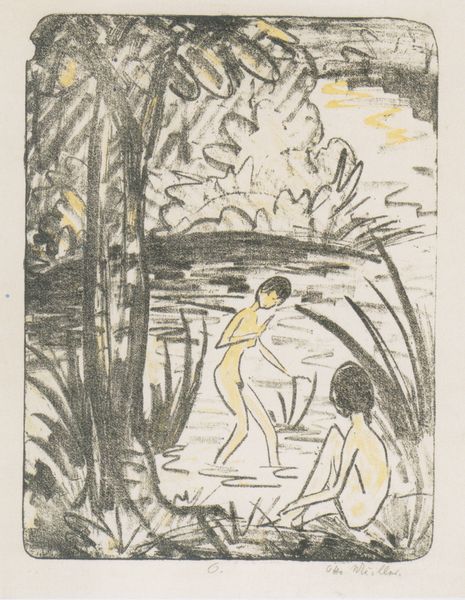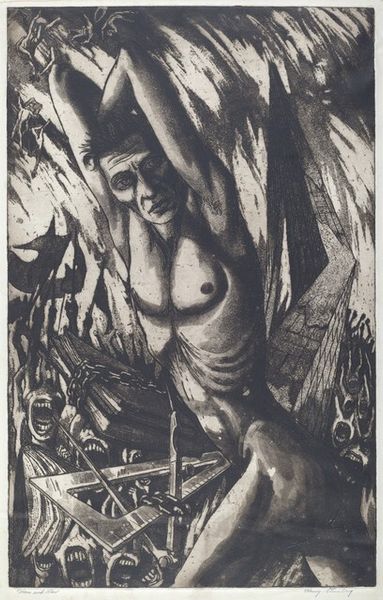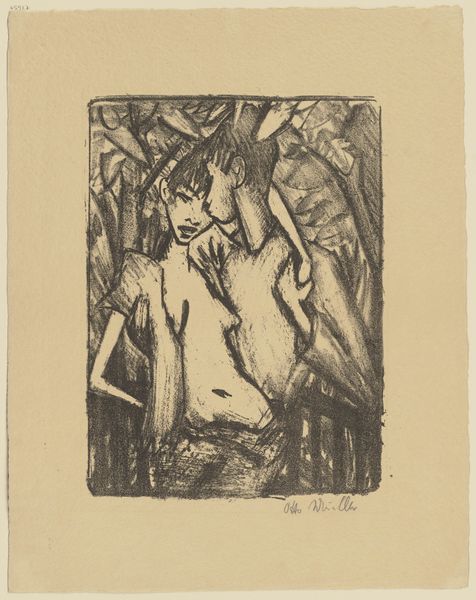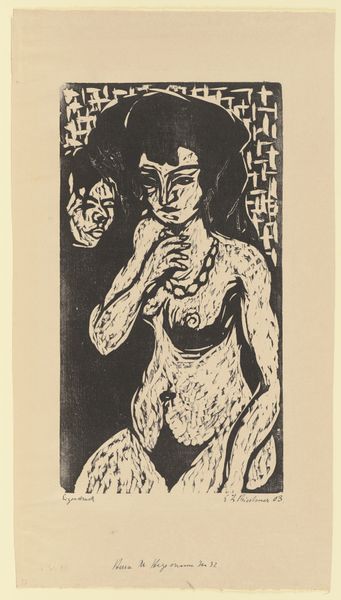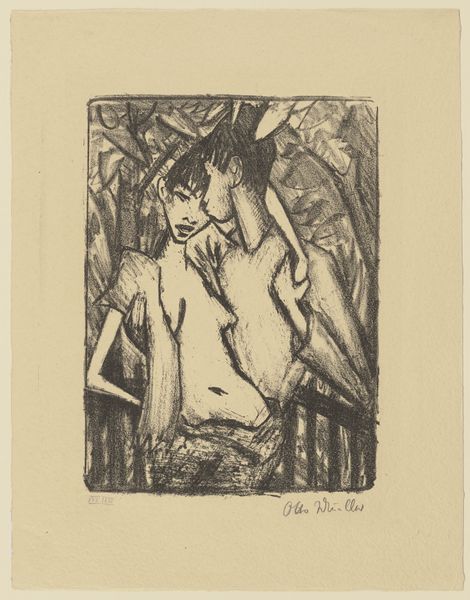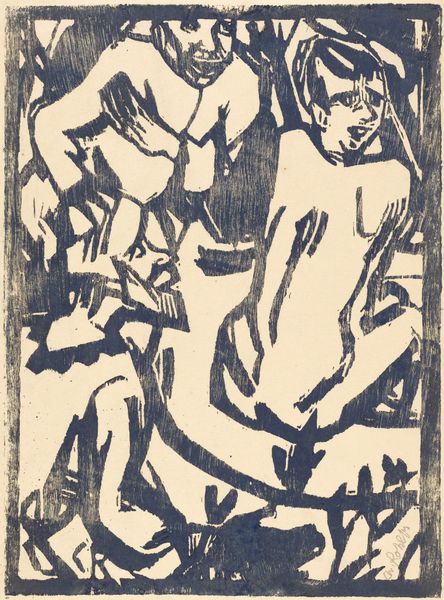
drawing, woodcut
#
drawing
#
landscape
#
german-expressionism
#
expressionism
#
woodcut
#
nude
Copyright: Public Domain
Editor: So, here we have Ernst Ludwig Kirchner's "Zwei badende Frauen im Felsenbach," or "Two Bathing Women in a Mountain Stream," from 1921. It's a stark, black and white woodcut, and the angularity of the figures and the landscape gives it such an intense, almost unsettling mood. What do you see in this piece? Curator: The woodcut's harshness speaks volumes. Kirchner, a key figure in German Expressionism, created this after World War I, a period marked by immense social upheaval and questioning of traditional values. Consider the fractured forms – they mirror the fractured psyche of a nation grappling with trauma and disillusionment. How does the primitivism apparent here resonate with those sentiments? Editor: Primitivism? Is that reflected in the simple carving, and figures looking almost like they're from another culture? Curator: Precisely. Kirchner, like many Expressionists, drew inspiration from non-Western art forms, seeing them as more authentic and less corrupted by bourgeois society. The nude figures are in nature, perhaps to suggest purity or a return to a primal state. The angular lines and stark contrasts reflect the tension and anxieties prevalent in post-war Germany, which affected societal views on gender, class, and politics. What do you make of the women’s gazes? Editor: Their eyes look almost fearful. It's like they're searching, maybe lost? Curator: Yes, and that adds another layer to our interpretation. The women's vulnerability and the fragmented landscape contribute to the overall sense of unease. The woodcut allows Kirchner to convey profound social and political commentary on a world searching for new definitions of societal relationships in the wake of war. It encourages a re-evaluation of cultural heritage. Editor: I see now! It's not just a depiction of nudes in nature; it's a reflection of the cultural anxiety and a search for meaning in a broken world. Curator: Absolutely. Kirchner challenges us to confront uncomfortable truths and question the status quo, reflecting the turbulent historical background.
Comments
No comments
Be the first to comment and join the conversation on the ultimate creative platform.
